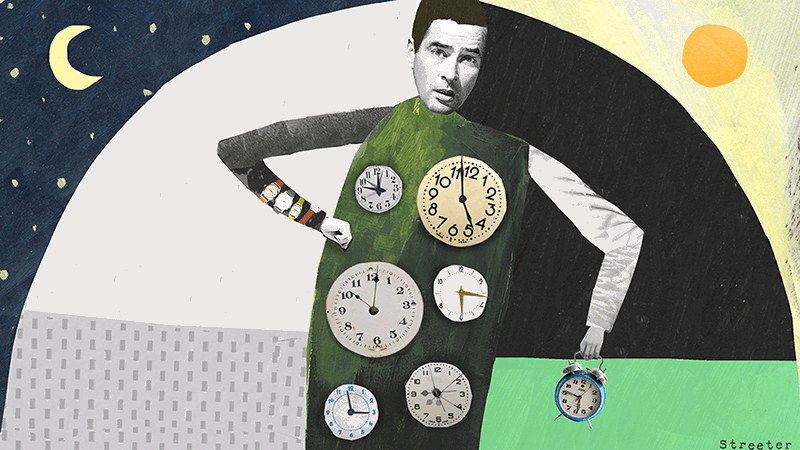WARNING! This is long – really long! Not only that, I think I’ve said everything in this post before. I am destined to repeat myself, because I talk so much, and also because I come form a long line of people who say the same things over and over. You are probably destined to forget the things I say, because of my aforementioned verbosity, and also because really, how well were you listening the first time? Anyway, I’ll understand if you only read a little, or just click on the clicky stuff. I won’t take offense. I’m just glad that I wrote something -anything!- even if I’ve already written it before!
I overheard one of my 8th graders talking to one of my 6th graders. “Two things: If you don’t understand what’s going on in the story, say ‘nonlinear vignettes that are slices of life reflecting the human condition’ a lot, and she’ll think you do. Also, you never have to study or even read for the last test of any novel Ms. R. assigns. The answer is, the protagonist always dies, and we learn that humanity is doomed.” This proves what an excellent teacher I am; they have learned in two years what it took me until graduate studies to figure out. The students have surpassed the master!
It is true I am fond of a good plunge into the cruel, icy waters (or is it the roiling volcanic lava? Robert Frost and I want to know!) of dystopian decimation, though I will point out that it’s not always the protagonist that meets an untimely death in the books I teach: “Stay gold, Ponyboy!”. In The Crucible, a novel that reads like a play, pretty much everyone dies. I like to see it as more bang for your buck.
In the world of dystopic dorkdom, a great debate arises regarding which is the better of two high school tomes, 1984, by George Orwell and Brave New World, by Aldous Huxley. I am, of course, too mature to enter the passionate fray sophomore literary scholars engage upon being forced to read these classics. The writings of Orwell, voted number two in the 2008 Times list of the 50 greatest British writers since 1945, and those of the psychotropic drug addled mysticist and academic, Huxley, both have their merits, so obviously, I remain objective. https://www.thetimes.co.uk/article/the-50-greatest-british-writers-since-1945-ws3g69xrf90 Of course, one can have a personal preference, as indeed I do, but I am steadfast in my professionalism, and ever unbiased, allowing the reader to thrill to the words and concepts that have become part of our vernacular, and that comprise all things ‘Orwellian’, or to enjoy, on a somewhat shallow and hedonistic level, the sex, drugs and rock and roll touted by the man nicknamed ‘Ogie’ as a child. Unless I came straight out and told you, you could never guess which book is my favorite.
Orwell and Huxley themselves were less judgmental than I. Shortly after publishing 1984, Orwell received a letter of congratulations from Huxley. After some polite words, Huxley got to the meat of the matter: he said that while either view of the nightmare that is human existence was possible, his was more plausible. (Horn-tooting Huxley strikes again! Oh, that Ogie is a pompous git!) In Brave New World, along with extensive in-utero (or, more precisely, in-labratorio) genetic manipulation and psychological-behavioral programming, the powers that be appeal to human vanity, need for delusion and external stimulation, and love of hedonistic escape to make their autocratic control possible. In 1984, a more violent, aggressive tactic is used to make the population pliable and obedient. As Orwell puts it, “If you want to imagine a picture of the future, imagine a boot stamping on a human face – forever.” Huxley makes a strong point about the sustainability of his vision. But Orwell rules, because I say so.
http://www.lettersofnote.com/2012/03/1984-v-brave-new-world.html
This is the crux of the “Fire or Ice” debate: in which way will people inevitably destroy themselves? Will it be through passion, fury and might? Mind numbing denial, apathy or prejudice? Inflamed self-righteousness and an all consuming, voracious lust for power at any cost, or a cold, calculating desire fulfilled by immediate gratification that allows us to wantonly forget the greater good, and pursue courses of action that bring about desired goals, regardless of the tolls on the future, or the horrifying consequences of the loss of our humanity.
Ray Bradbury believes that we willfully fling open the door to doomsday by allowing ourselves to get sucked in to the glittery promise and opportunities that technology holds.While he was a proponent of imagination, invention, innovation and possibility- “We must move into the universe. Mankind must save itself. We must escape the danger of war and politics. We must become astronauts and go out into the universe and discover the God in ourselves” (via CNN) – he worried that we were just not equipped to make the best choices or foresee the negative aspects to our positive innovations and studies – ask pacifist Albert Einstein a thing or two about that particular kettle of fish! “I don’t think the robots are taking over,” Bradbury said. “I think the men who play with toys have taken over. And if we don’t take the toys out of their hands, we’re fools.” (via the Associated Press) Einstein agreed, kinda. “I believe that the abominable deterioration of ethical standards stems primarily from the mechanization and depersonalization of our lives,” he wrote in a letter to his friend, psychiatrist Otto Juliusburger, in 1948, “a disastrous byproduct of science and technology. Nostra culpa!”
Check this out – pretty freaking prescient! https://www.washingtonpost.com/business/technology/dreams-of-ray-bradbury-ten-predictions-that-came-true/2012/06/06/gJQAqbs9IV_story.html?utm_term=.5b936082bf56
But still, why do I insist on teaching all of this to the sweet, innocent lambkins in my classes? Can’t they just be happy for a few years? Don’t I know any nice books, with happy endings?
NYET! NEIN! ![]() ! Nope! We have to teach our children to pay attention to the word around them, because, no matter how much we want it to be as we want it, it will become theirs, and they will have to figure out what to do with it. Today we see kids becoming active and engaged in their future, and it makes me proud – somewhere along the way, the Parkland generation, like the kids of the Civil Rights Era, and many others before them, must have had some good teachers.
! Nope! We have to teach our children to pay attention to the word around them, because, no matter how much we want it to be as we want it, it will become theirs, and they will have to figure out what to do with it. Today we see kids becoming active and engaged in their future, and it makes me proud – somewhere along the way, the Parkland generation, like the kids of the Civil Rights Era, and many others before them, must have had some good teachers.
Today in the NYT, I found these articles:
https://www.nytimes.com/2018/03/31/business/media/amazon-google-privacy-digital-assistants.html
https://www.nytimes.com/2018/03/31/business/tesla-crash-autopilot-musk.html
https://www.nytimes.com/2018/03/30/movies/hal-2001-a-space-odyssey-voice-douglas-rain.html
I could go on. It’s depressing, and so easy to dismiss as hopeless. The great literature seems to imply that indeed, it is hopeless. George is always going to have to shoot Lennie like Odysseus’ stinky old dog, and he is always going to have to live with the regret and doubt that comes from his actions. We are destined to make the same mistakes, doomed to forget hard-learned lessons, and hard-wired to eschew change. Bummer.
But that doesn’t mean we shouldn’t try to evolve…there is a place for willful delusion! How can we live in a world that is void of hope? We cannot. And that is why we are doomed. Because we are human. We can’t win, but we mustn’t give up! Even if we fail to overcome that which propels us to jettison ourselves towards disaster, moth-to-flame, we must always resist the sucking negativity that is our birthright! Resist, I say! Resist, and try hard, and do good, and teach the children, and learn many, diverse things. See beauty and seek to love freely and wholly, and to be treated in kind. Please yourself, and hurt no one. Be kind and generous, and take everything offered to you.
Yep. That’s what I think.
Einstein said in a 1955 letter to Bertrand Russel: “There lies before us, if we choose, continued progress in happiness, knowledge, and wisdom. Shall we, instead, choose death, because we cannot forget our quarrels? We appeal, as human beings, to human beings: Remember your humanity and forget the rest.” Smart cookie, that one.

Waxahachie Bathroom, Webb Gallery, 2018
P.S. If you’ve made it this far, thanks for indulging me! You’re a peach!
 I think a lot about time. You probably know that, because I write a lot about it. I’m kind of obsessive. I think about time and memory, time and conscious and unconscious thought, time ahead, time past, time better spent, time for change, how time doesn’t change, how quickly things change, the transient nature of reality from moment to moment.
I think a lot about time. You probably know that, because I write a lot about it. I’m kind of obsessive. I think about time and memory, time and conscious and unconscious thought, time ahead, time past, time better spent, time for change, how time doesn’t change, how quickly things change, the transient nature of reality from moment to moment.